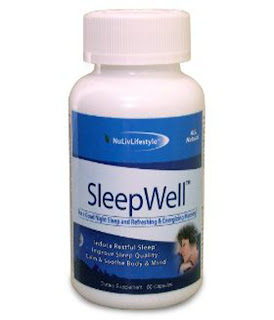Dealing With Insomnia – Get A Good Night’s Sleep
 |
| insomnia pills |
Most everyone experiences some minor episodes of insomnia lasting from one night to intermittent episodes of sleeplessness for a few weeks. This form, called transient insomnia, is not unexpected and almost everyone will face it at some point in their lives. For instance, a particularly stressful week at work might leave someone unable to sleep for a few nights. But, once the week is over, they can get back to sleeping normally.
Some people may also experience acute insomnia, which is a form of short-term insomnia that can strike at some points in peoples’ lives. For instance, if someone is suffering through a job loss or a difficult divorce, they may experience a persistent inability to get good sleep for anywhere from three weeks to six months. Notice that, in the case of acute insomnia, this is not a nightly occurrence and the sufferer is still able to get good sleep on some nights.
The most severe form of insomnia is chronic insomnia, which occurs almost nightly for a month or longer. This form of insomnia often seems to arise from seemingly nowhere and leaves the sufferer almost no reprieve. Oftentimes, this can leave the person fatigued, but not actually tired enough to fall asleep. This situation can lead to depression, anxiety, an inability to concentrate, and a feeling of just “being in a fog” all the time. Obviously, this is a bad state for a person to live in and they need to find relief.
While the temporary forms of insomnia can be relieved by relieving the temporary causes of insomnia, this is not a solution for people who suffer from chronic insomnia. Thus, people with chronic insomnia need to find solutions that address insomnia specifically.
 |
| dealing with insomnia |
Other people seek herbal treatments, such as valerian, chamomile or lavender, for relief from insomnia. Many of these herbal remedies are fairly benign, but they can still leave people reliant on them to fall asleep at night.
More traditional remedies for insomnia include exercising in the afternoon, drinking warm milk before bed, avoiding anything mentally stimulating in the evening, and just going to bed early at night and waking up early in the morning. Obviously, it is preferable to start with traditional remedies such as this and move toward herbal remedies or sleeping pills if these do not help.
While insomnia is frustrating for people who suffer from it, it is treatable. There are many remedies out there and people should not be afraid to try them. In most cases, people can simply wait out the circumstances that are causing their insomnia and they will be fine. However, if insomnia is an almost nightly occurrence for a month or more, it is time to talk to a doctor and see what remedies might be suitable.



